When Bottled Water is Considered Essential, is Boxed Water™ a Better Alternative?
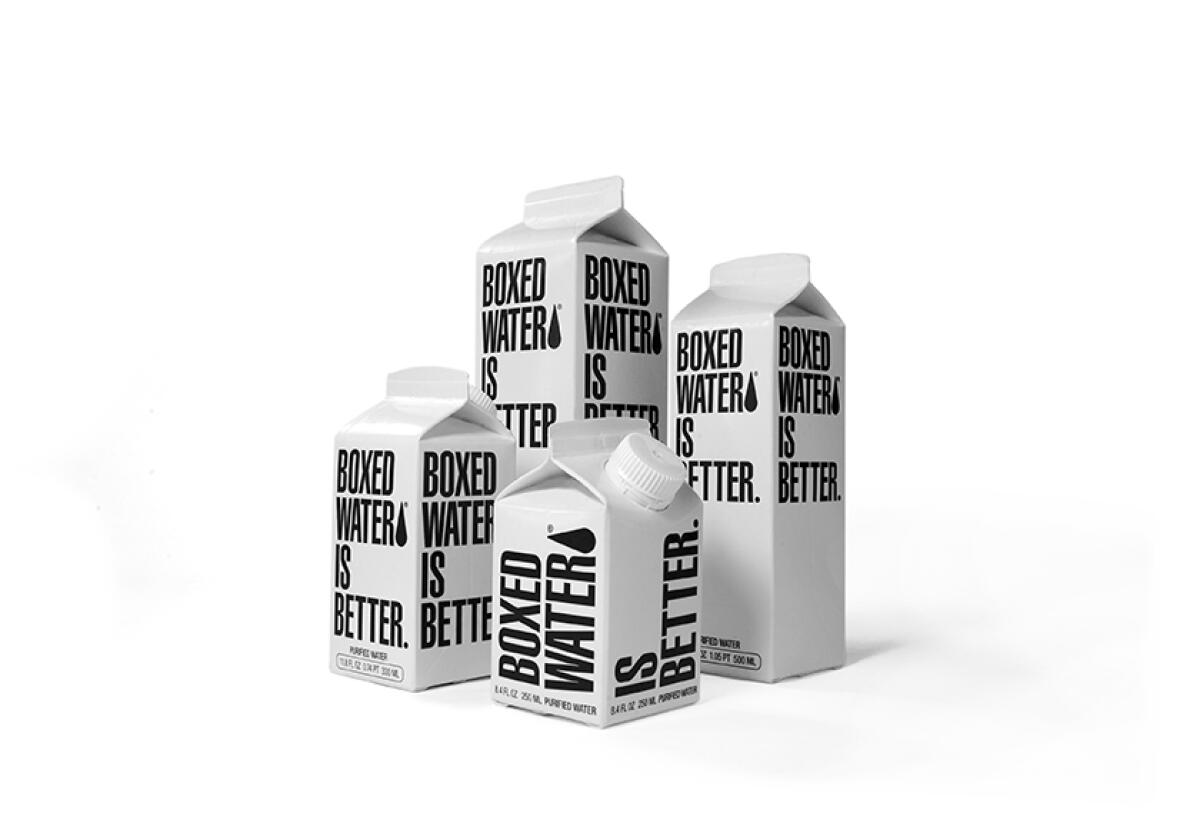
- Share via
Think about the last time you drank water on the go. If you’re like many Americans, you did so sipping from a single-use plastic bottle. In fact, Americans purchase 50 billion plastic bottles per year. And while we’ve long been fed the narrative that as long as plastic is 100% recyclable it is sustainable, the real fact is that is far from the truth. Even canned water, increasing in popularity lately as sparkling beverages become more en vogue, is not nearly as sustainable as it seems. Given that we as a species must continue drinking water, how do we do so while maintaining critical planetary stewardship?
The answer is simple: Use a multi-use, personal and refillable vessel. And, in a perfect world, we’d all have our bottle attached to us at all times, filled to the brim with pure water ensuring we meet our daily hydration needs.
It’s not a perfect world.
You’re on the go, you’re busy, you are on a plane or at a game, or late getting the kids to school before a morning of errands takes you across L.A. County on an hours-long odyssey. How does one not succumb to grabbing the most convenient, perfectly chilled plastic bottle of water right there in the grocery store line? After all, during COVID-19, most public fountains and even many refilling stations were shuttered in the name of public health – what’s the alternative?
It’s a common statement: “There’s got to be a better way.” And there is. There has been. It’s been quietly revolutionizing the industry for over 10 years. It’s Boxed Water™.
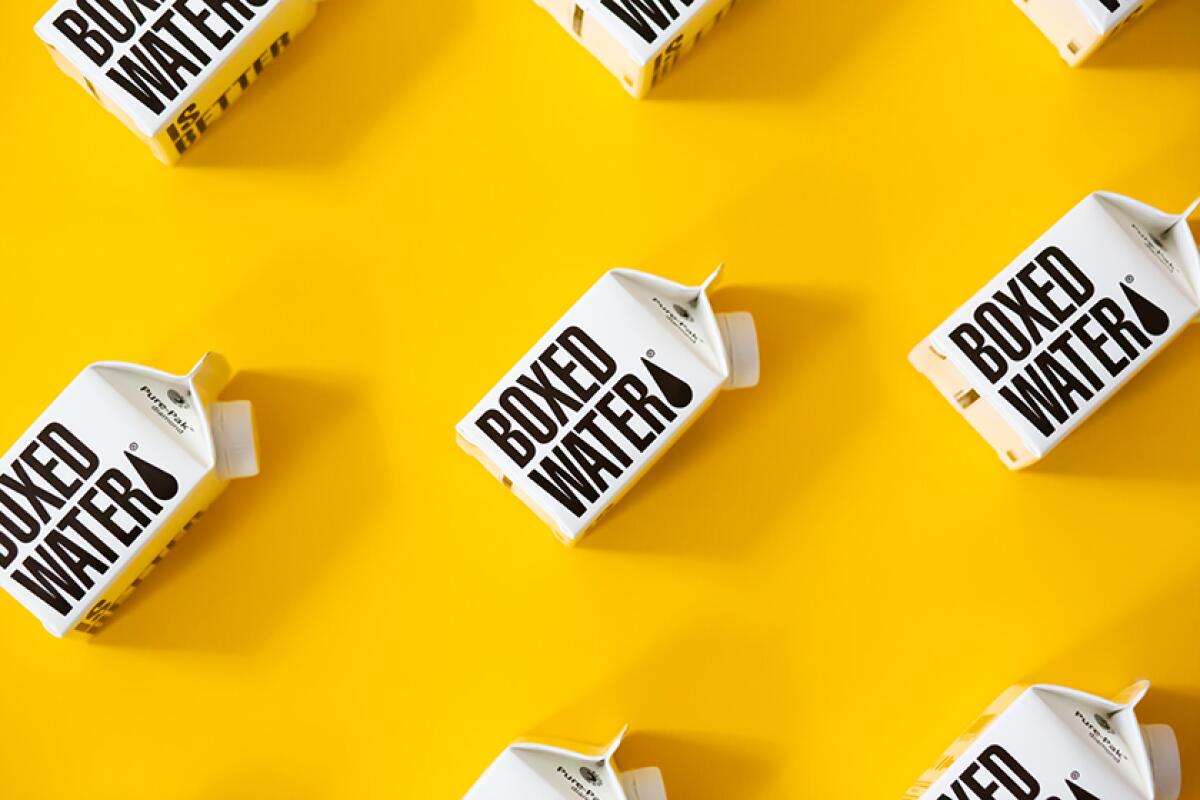
The Originator
It was back in 2009 when the co-founders of Boxed Water executed a deceptively simple idea: Move water packaging to a sustainable model using paper-based packaging to disrupt a sea of single-use plastic water bottles. With study, research and innovation, the company Boxed Water Is Better® designed a package that was, amazingly, 92% plant-based, by far the industry’s highest renewable content. The Boxed Water package is made of paper cartons, plant-based plastics, and a small amount of other materials for safety and shelf life; the Boxed Water carton is 100% recyclable.
The design of this style of package predates many things we now take for granted to mitigate the impact of plastics, especially in California. For example, the state banned single-use plastic bags in 2014, five years after the Boxed Water brand started selling its innovative carton. The much-hyped plastic straw legislation didn’t become law until 2018 – Boxed Water had been creating fully recyclable packaging to combat plastic pollution for almost 10 years.
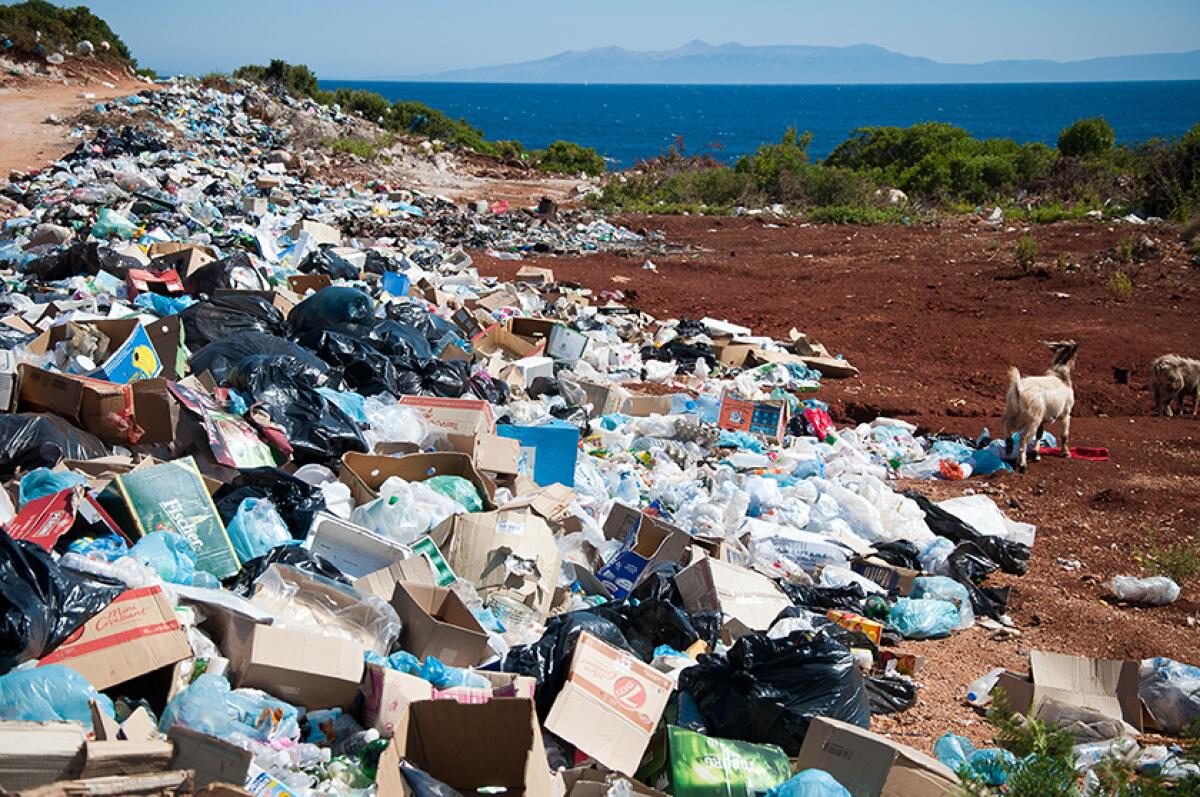
The Single-use Plastic Problem
It’s easy to look at single-use plastic bottles and wonder why they’re so damaging, especially in a state with robust recycling programs. After all, if we toss that bottle in the blue bin or ensure we get it in the right container at the beach, there’s no issue, right? Many large companies utilizing plastic boast that their containers are made (typically, in part) from recycled plastic. While this is usually true, it also ignores the enormous impact that single-use plastic has on the world. According to independent research, a staggering 500 billion plastic bottles are created each year, with only 29% of those being recycled. What happens to the millions of tons of plastic that are tossed away or ignored?
Most simply, it ends up in our oceans, and by extension, in everything we consume or interact with. With the damaging impact of microplastics, which are often broken-down pieces of plastic containers, affecting everything from our fisheries to our own bodies, this global problem requires an urgent solution. A revolution in how we interact with disposable plastics is absolutely necessary to revert the damaging impacts caused by our reliance on the substance – Boxed Water, and its attempt to upend this powerful industry, is just one of the companies looking to change the future.
This, of course, has created resistance from the plastics and beverage industries, which are reliant on single-use plastic and aluminum cans. They are most interested in their bottom line. Powerful lobbies attempt to understate plastic’s impact on the environment and laud recycling efforts, which are simply not enough. Accusing other companies of “greenwashing” when the plastic bottle companies are consistently ranked as the world’s top plastic polluter. An inconvenience they often fail to mention: Plastics come from oil and are not renewable nor infinitely recyclable. New oil for plastic is continuously sourced. Paper, on the other hand, is sourced from sustainably certified tree farms that are continuously replanted.
The plastic industry, through its powerful lobbying programs, is quick to point attention to recycling as a solution. They have invested heavily in promoting this message to consumers and turn around to make claims that cartons cannot be recycled, a fact that is inherently false. Cartons do require specific machinery to recycle, however, every day more and more community recycling programs attain this equipment. In fact, despite the relatively new carton packaging, more than 64% of the country has curbside access to carton recycling, and rates continue to rise. Plastic containers, by contrast, have been around since the 1950s and yet recycling rates are abysmal by comparison. New studies show, recycling rates of plastic have actually dropped in recent years as production increases, and the U.S. government has now opened investigations on the oil industry’s deceptive claims.
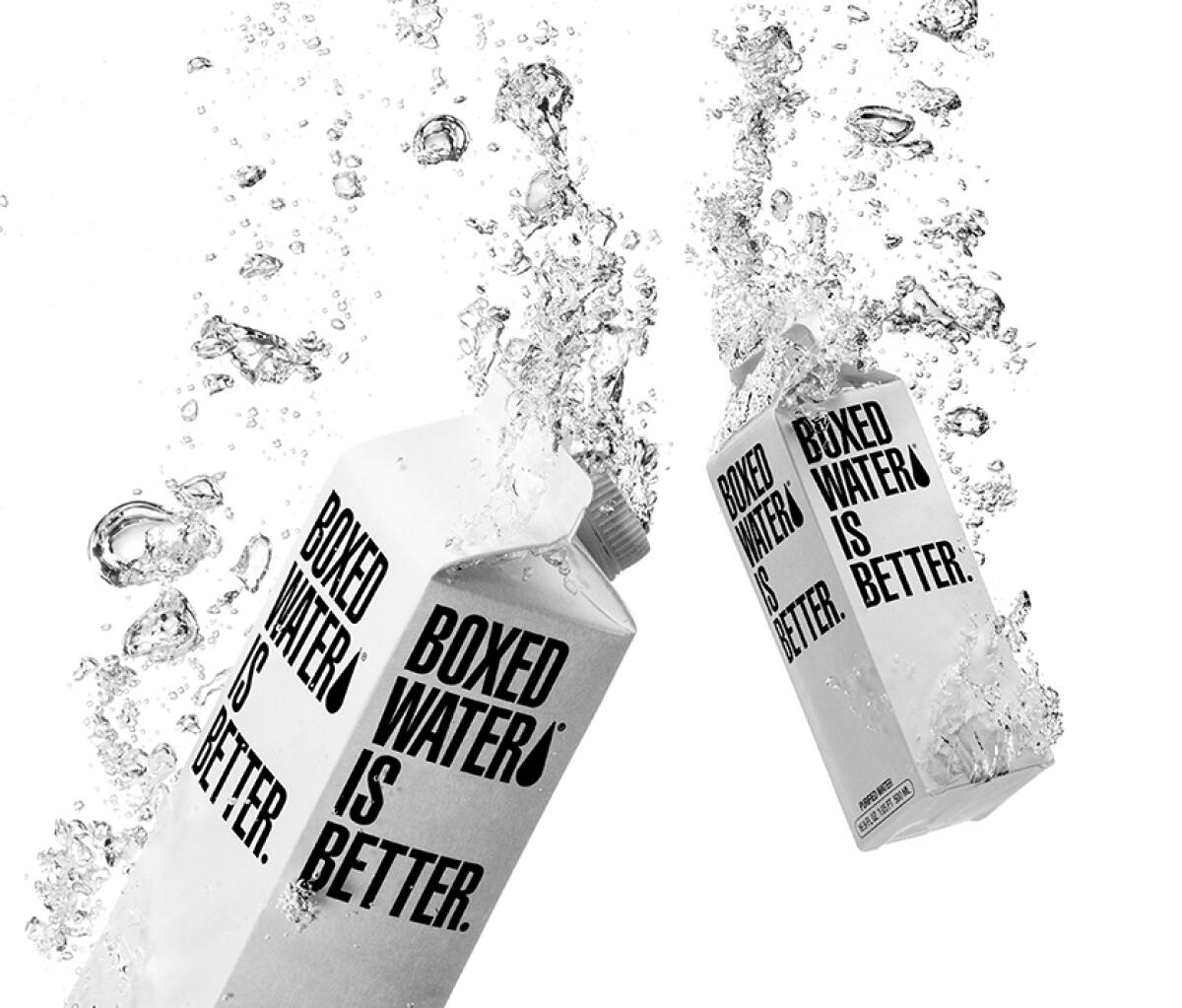
More Than a Container
Boxed Water’s container is innovative, expanding upon years of research and innovation to create the next generation of sustainable packaging. However, that alone is not enough to mitigate the industry’s impacts on the environment. As a consumer of resources, however necessary, the brand had to be mindful of its total environmental impact.
We enjoy drinking water from mineral springs, European hideaways, even tropical islands. But few of us ever consider the extreme strain it creates on a fragile environment to exploit, bottle, and then transport that momentary delight to our convenience store or home. Is a sip of water that has come halfway around the world to quench a thirst really worth it? Boxed Water knows that its environmental footprint isn’t just in its packaging. The company sources water from two locations right here in the United States – both likely not that far from the majority of people consuming single-use plastic bottles. One east of the Mississippi and one west – to minimize distribution impact while maximizing delivering fresh, pure water to its customers.
In addition, the company has vowed to be a steward of the resources it uses, pledging to and succeeding in planting over 1.2 million trees in the U.S. National Forests. Among the national forests they’ve planted in the Stanislaus National Forest in central California – most recently devastated by the enormous Rim Fire in 2013.
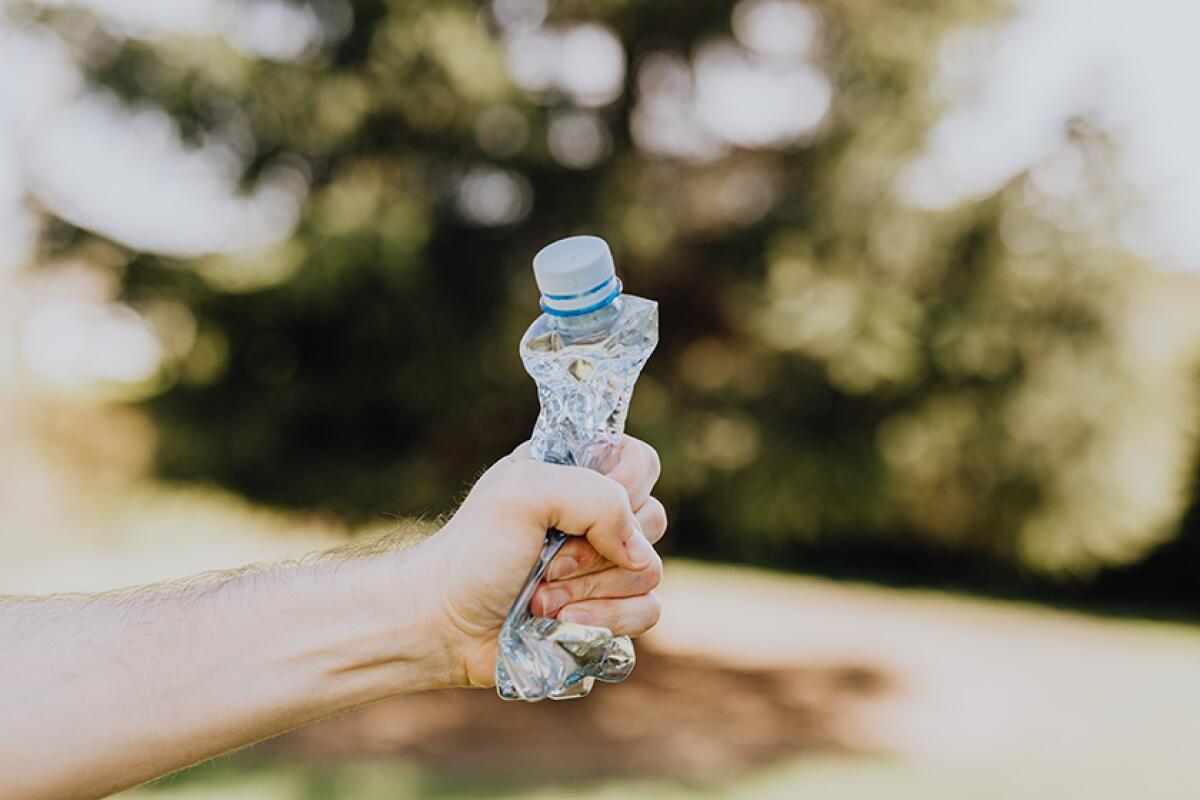
Taking Notice
As awareness continues to expand about our individual and group impacts on the environment, Boxed Water is becoming increasingly in the spotlight as an innovator in the sustainability space. Most recently, the company is partnering with Alaska Airlines to transition their reliance on single-use plastic bottles in airline service. Air travel, already a hard user of disposable containers due to restrictions on liquids when flying and the need for single-use containers during flights, represents a place where a company like Boxed Water can have an outsize impact. It’s no small number: Alaska Air, one of the largest carriers serving the American West, will remove 22 million plastic cups and 32 million plastic bottles annually from the switch.
When considering global impact, it’s often a struggle to not feel powerless. What can you, the individual, do to create change? Companies like Boxed Water are doing the leg work for you – being stewards of their resources, thinking about future impact, and battling the status quo. So, in this instance, affecting change is easy: Tote a reusable when you can, and when you can’t, choose Boxed Water.